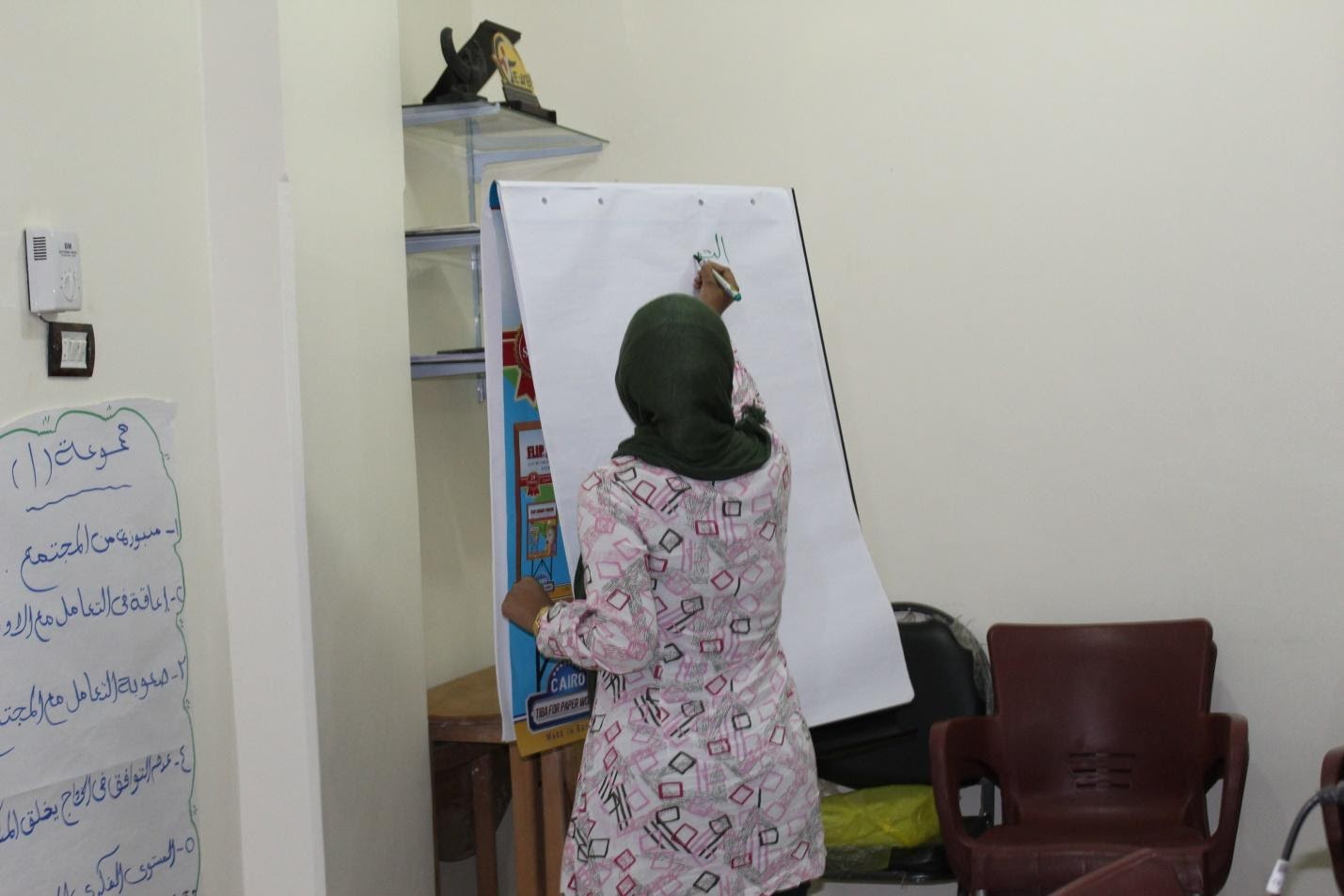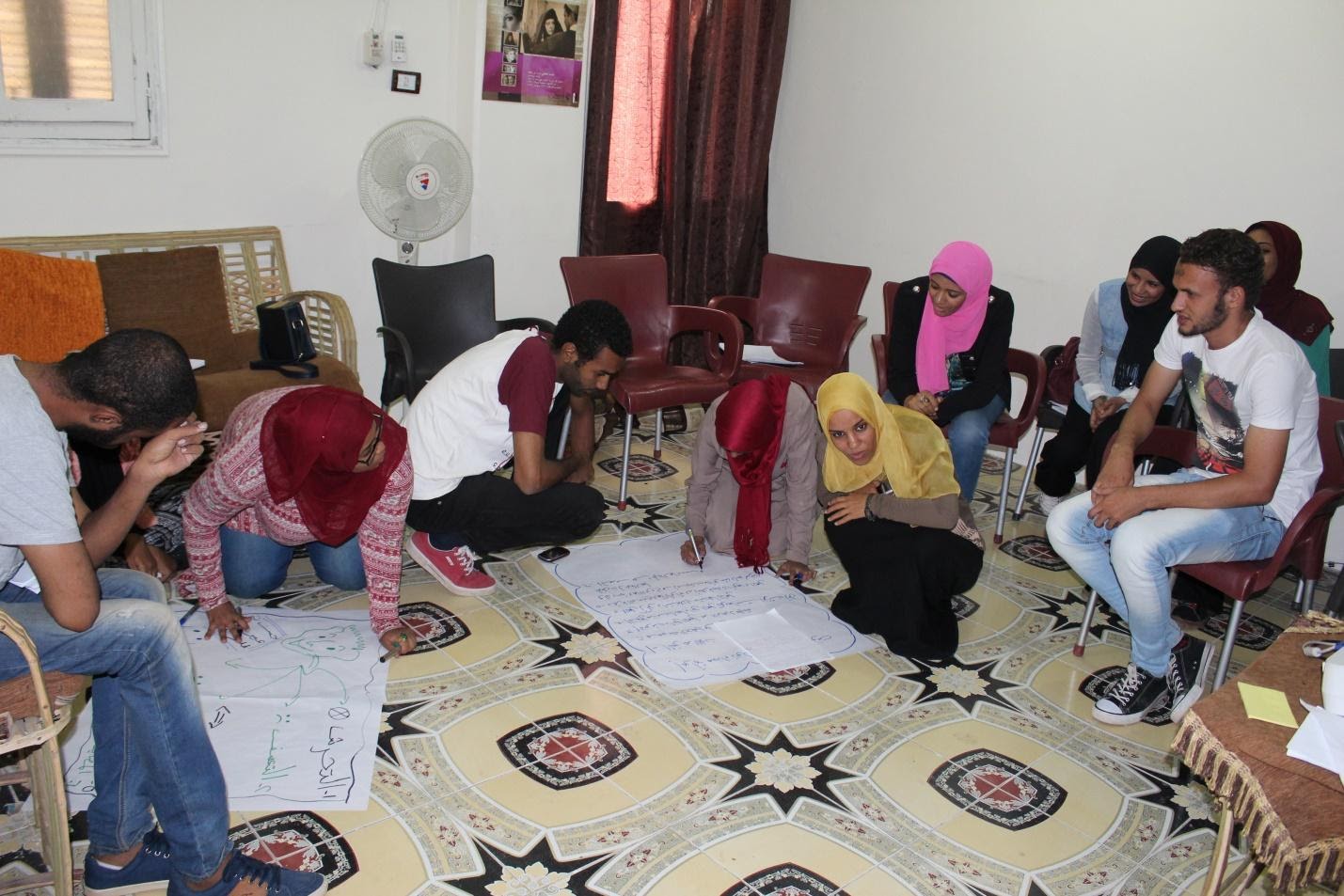
Double discrimination project for black women and people with disabilities
It is a project of its basic formation, implementing interactive awareness workshops on distinction as a general concept with mentioning the two special concepts that were previously chosen and focusing on them. The workshops deal with topics revolving around the nature of discrimination from international definitions and charters you know, its practices and the intertwining relationships between discrimination and stereotyping and the extent of the impact of discrimination on participation Women in public life, whether political or social, and their relationship also to the economic impact on them.
We will provide a field of discussion for the participating young men and women in an interactive and participatory manner that gives them / m the opportunity to share the questions that revolve in their minds / m and the stories that they experience themselves / m of discrimination directed against women in the two main topics selected during the workshops and also it will be important to exchange ideas about the proposed solutions to reduce Discrimination against women, whether specific or general, (ethnic – disability).
The two workshops were designed to be carried out by grading in the selected topics in order to reach the trainees to the general objective of the two workshops. A special paper on a free south, which discusses the presence of women with disabilities in the public sphere, was used to highlight the double discrimination that always occurs in the public sphere. From the discriminatory intersections against women in Aswan because of the multiplicity of tribes they carry and because they are subjected daily to discrimination on the basis of their gender being women only, and this discrimination does not stop at this point, but most women are exposed to many intersections, that is between the private and the public domains, and each of them is subjected separately to any type or two or more of discrimination and persecution for being women who bear another characteristic, whether from within or outside the family, such as being a person with a disability or with a disability and belonging to a lower social class, race, or disability.
